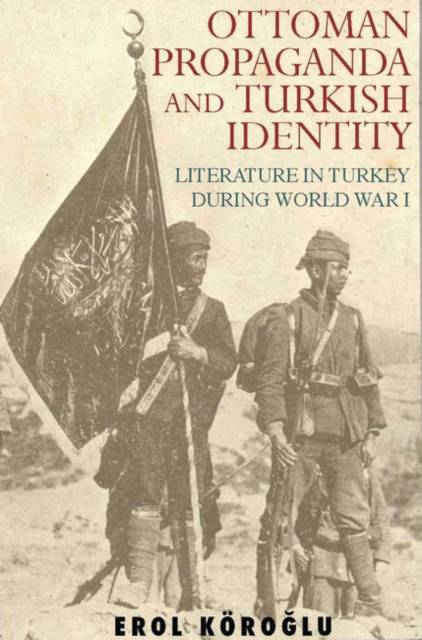
- Retrait gratuit dans votre magasin Club
- 7.000.000 titres dans notre catalogue
- Payer en toute sécurité
- Toujours un magasin près de chez vous
- Retrait gratuit dans votre magasin Club
- 7.000.0000 titres dans notre catalogue
- Payer en toute sécurité
- Toujours un magasin près de chez vous
296,95 €
+ 593 points
Description
The Great War was the first example of a total war in history, reflected in the cultures and literatures of Europe in the shape of propaganda. What began as civic patriotism developed into a weapon of war, programmed and organized by the state to devastating effect. In almost all countries, writers of different ideological hues were ready to undertake the job of representing the war, in accordance with the state's guidance. War propaganda in the Ottoman Empire, the most anachronistic belligerent of the war according to historians, was condemned to failure. In the underdeveloped and multi-ethnic Ottoman Empire, the Ottoman-Turkish intelligentsia could not produce adequate propaganda to support the battlefronts and the home front. Why did propaganda efforts die after 1915? Can this be explained with the laziness or cosmopolitanism of the cultural agents? Or did the lack of propaganda derive from reasons that are more material?Erol Koroglu seeks to address these questions in a unique interdisciplinary assessment of Turkish literature and propaganda, interpreting literary texts written by the representative writers of the period.
These interpretations follow a literary cultural history method and give an analysis of the complex interaction between literary texts and the historical context. Koroglu discusses the subjects of First World War propaganda, Turkish nationalism and national identity construction. He concludes that the unfavourable conditions in the Ottoman-Turkish cultural sphere, the literature of the years 1914-1918, even if superficially full of propaganda aims, was essentially the continuation of a project to build a national culture, inherited from the pre-war years and never completed. Turkish literature therefore did not reflect powerful propaganda, but was more a difficult attempt to create 'national identity'.
These interpretations follow a literary cultural history method and give an analysis of the complex interaction between literary texts and the historical context. Koroglu discusses the subjects of First World War propaganda, Turkish nationalism and national identity construction. He concludes that the unfavourable conditions in the Ottoman-Turkish cultural sphere, the literature of the years 1914-1918, even if superficially full of propaganda aims, was essentially the continuation of a project to build a national culture, inherited from the pre-war years and never completed. Turkish literature therefore did not reflect powerful propaganda, but was more a difficult attempt to create 'national identity'.
Spécifications
Parties prenantes
- Auteur(s) :
- Editeur:
Contenu
- Nombre de pages :
- 272
- Langue:
- Anglais
- Collection :
- Tome:
- n° 13
Caractéristiques
- EAN:
- 9781845114909
- Date de parution :
- 01-10-07
- Format:
- Livre relié
- Format numérique:
- Genaaid
- Dimensions :
- 161 mm x 225 mm
- Poids :
- 467 g

Les avis
Nous publions uniquement les avis qui respectent les conditions requises. Consultez nos conditions pour les avis.






